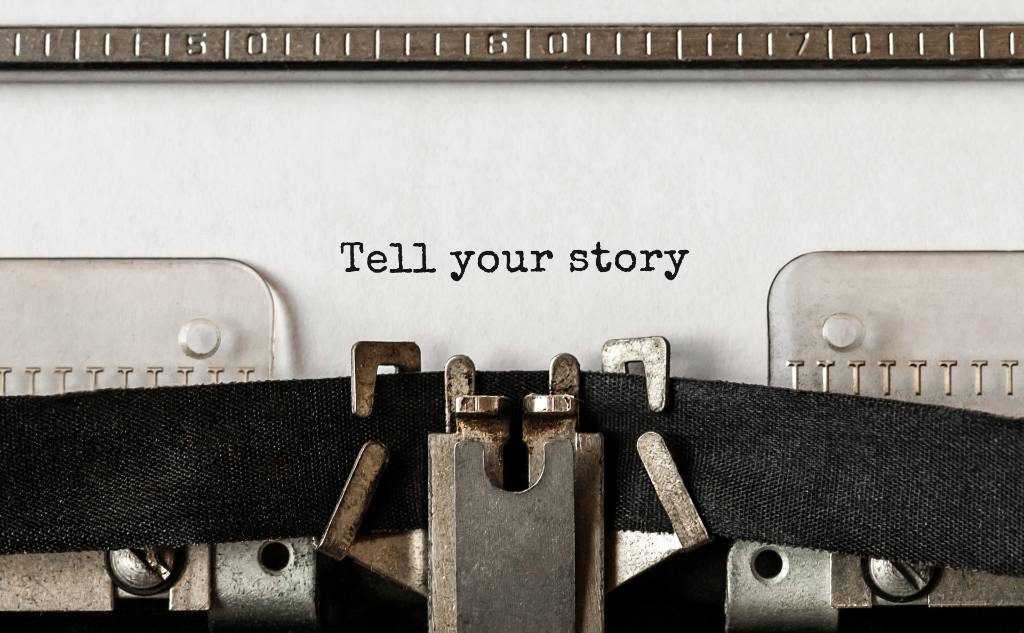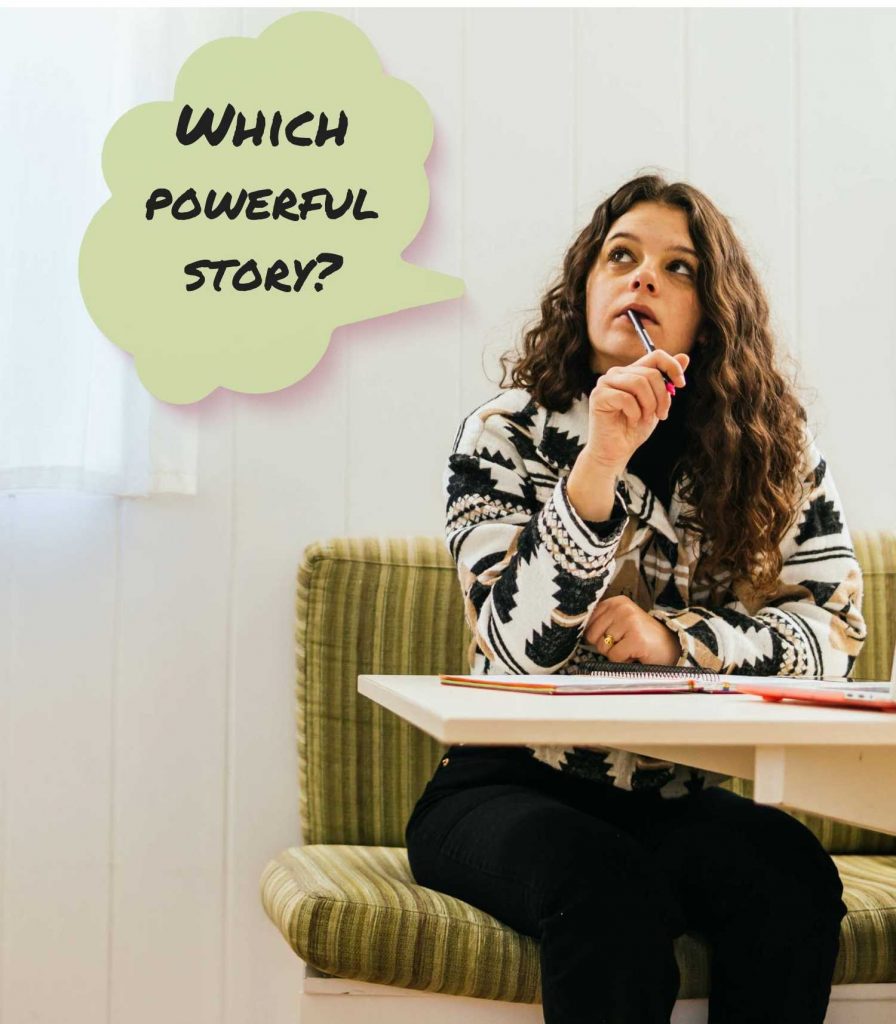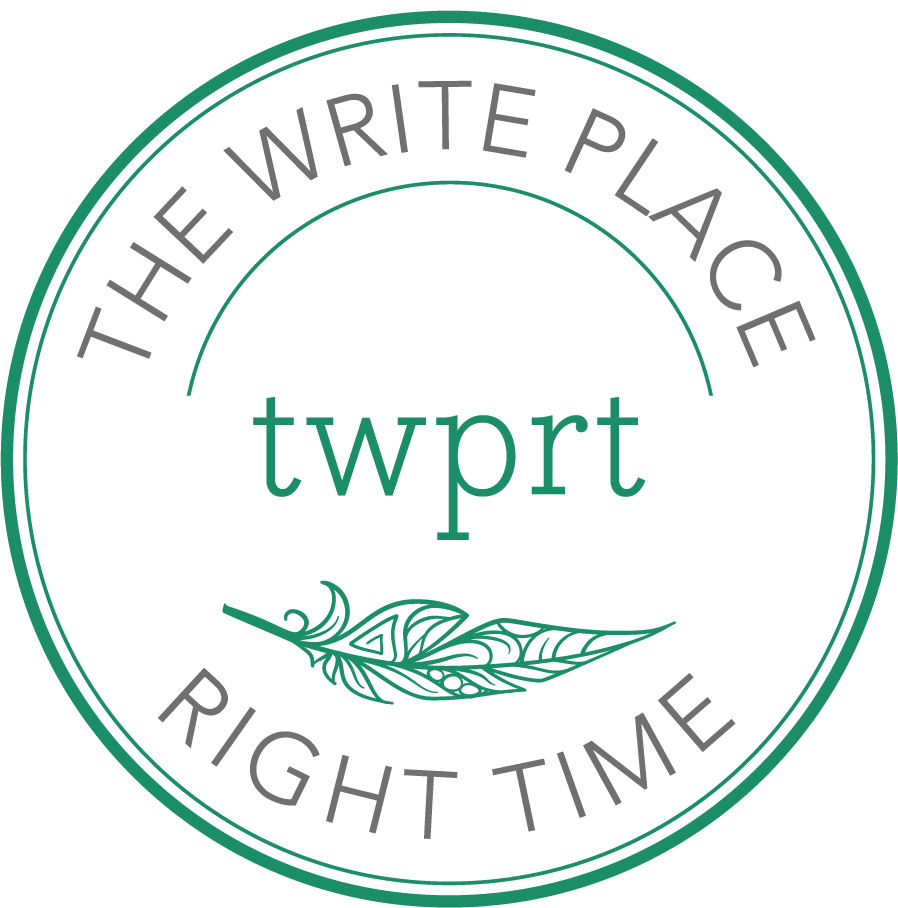Let's say you're emotionally ready to write your memoir (see last month’s post here)... Let’s also say that you’re pretty jazzed about getting started… And let’s also say you don’t have an ‘effin’ clue what to focus on. Because honestly, this is where a lot of people are in the beginning. They know they’re called to write a book. They know on some subconscious level they’ve got something important to say. They know they’ve got stories (as in life anecdotes) for days. But… they don’t know the powerful story they want to tell (or should tell or are meant to tell) inside their book. Everything feels too overwhelming because they’ve lived a long, full life. So, how do you know the powerful story you want to tell?

First, you recognize that you’re writing a memoir, not an autobiography. Knowing this difference is KEY. An autobiography reads more like history and is fact-based. It typically starts with birth and follows the person’s life in a chronological order, noting the key things that happen. It’s not particularly introspective, reflecting on how these key things are a part of some greater meaning. Autobiography is a historical record of a person’s life. This can be great as a family legacy project if you want to leave behind your life’s details, but from a more traditional publishing standpoint, these are usually reserved for famous/notable people.
What I want you to understand, however, is that if you want to write a powerful story, you need to look beyond the “this happened, then this happened…” retelling of events you’ve been through. That’s a snooze fest and won’t really impact people in the way you want.
Memoir, on the other hand, is based on the author’s life, but reads more like fiction because it’s written using the same kinds of literary devices that fiction writers or novelists do. When you read a memoir, you know that the story is based on reality by its classification as a memoir. As a reader, you’re as sucked into the journey and narrative as you are the same way when reading something shelved as a novel.
What also makes memoir different from autobiography is that it’s not focused on the author’s entire life but a captured segment of time and it’s heavily focused on the emotional reflection of the events that happen in that period. Because of the wisdom and insight that is woven into a memoir, the author has more ability to tell a powerful story that leaves readers feeling transformed or hopeful or inspired or less alone, etc.

If you want to write a book based on some periods of your life, then write a memoir. And if you’re writing a memoir, know what your critical life moments/experiences are. Again, we don’t need ALL the moments. I don't want to read “I was born on August the 5th at noon…. On my 35th birthday…” Not unless your birth and your 35th birthday are extremely critical to the larger point you’re trying to make. And that’s what memoir is about: the meaning of the critical life events that are captured in that focused period of time that you’re writing about.
Sometimes, however, in order to understand what our powerful story is about, we have to back into it. This is why I’m suggesting that you know your critical life moments and experiences first. What would you say those are? What are the anecdotes you tell over and over again? What memories or experiences always seem to be at the top as being critical to your development or who you are today? Know those. Drain the well and get them on paper.
Then, find the trend. Look for the pattern. How do those critical moments or experiences relate to one another? When I sifted through all my life’s critical moments and experiences as I prepared to write Dear Universe, I Get it Now, I came to realize that 80% of the ones I had captured on post-it notes all had to do with bravery or being one’s self. There’s a specific reason my book’s subtitle is Letters on the Art and Journey of Being Brave and Being Me. My powerful story inside Dear Universe is about being brave and being oneself.
You may notice more than one common thread as you embark on your memoir writing journey; maybe you’ve got more than one powerful story inside you. That’s totally possible. But you need to write one and focus on one and not cram too much into one book.
So, figure out which one feels right. Which powerful story is whispering your name a little louder than the others? Which one feels like The Thing you want to be known for? Or, better yet, though this is a bit of a morbid way to look at it – if you were hit by a bus tomorrow, which story would you prefer to be recorded in a book to leave behind as your legacy? Write that one. If that’s the one you’d want to continue to exist after you’re gone, that’s the powerful story to tell right now.

Not everyone knows how to sift through and find the actual story they want to tell, but if you’re ready to be led in finding it and…
You’re a woman (or a loving, kind human) feeling called to get your book out there, and now is the time AND…
You know that whatever you write is going to take a shitload of vulnerability and you're ready to put it out there by working on it in a safe space AND…
You've done some personal healing work that allows you to talk about your book without making it a therapy sesh AND…
You're looking to receive individualized support that helps you take aligned and intentional action toward the next steps on your book writing journey that feel realistic and empowering AND…
You're ready to invest time, energy, and money rather than just giving your idea lip service…
Then you may just be perfect for my Sips a Latte package.
Book a Coffee & Craft call with me so we can discuss working together in this way. It’s only one hour, and totally free.
